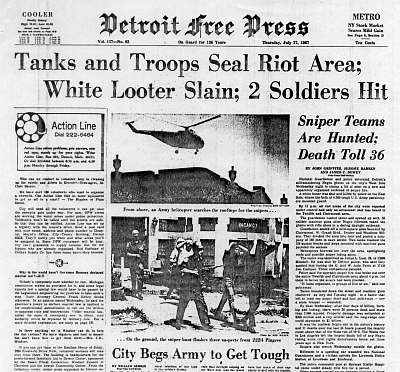Since rioting began in Ferguson, Missouri the racial divide in America has once again proven to be an issue that simply won’t go away. Could this be an opportunity for terrorist groups like ISISL to recruit more members and exploit the situation by using local antagonists to wage inner-city jihad in America?
The Ferguson riots have shown how fragmented the inner cities in America really are with disenfranchised youth; a ripe hunting ground for ISISL. Not since the assassination of Martin Luther King has America been so vulnerable to destruction from within.Convincing a few teens in the inner cities to rise-up and create strife at every opportunity, further dividing the nation—is a real possibility. Indeed, inner-city jihad may be the new catch phrase if the racial divide in America is not bridged.
Racism exists in Canada as well, but we have somehow managed to find a balance among the different cultures which have flourished in an environment of employment equity and equality under the Constitution. For example, in Canada three founding peoples are officially recognized: English, French, and First Nations. And the country’s constitutional philosophy is based on the principles of peace, order, and good government. Furthermore, in Canada equality of the sexes is absolute.
 The Detroit city riots of 1967 are said to be the worst in U.S. history. In 2013 Detroit was the largest U.S. city to officially declare bancruptcy.
The Detroit city riots of 1967 are said to be the worst in U.S. history. In 2013 Detroit was the largest U.S. city to officially declare bancruptcy.
The U.S. Census Bureau projects by the year 2060 there will be 77.4 million African Americans including those of more than one race in the United States. The rioting and looting in Ferguson demonstrates the need for more education and openness in government at the municipal level. Put simply, the status quo is not working.
The inner cities of America appear to be crumbling from within. They have become places where young people are encouraged by social media to believe in the philosophy of instant gratification; in a world of massive debt, where the rich get richer, and the poor pay more; and where entitlements have gone the way of the 8-track. Having hope for change―doesn‘t pay the bills in the poor neighborhoods of Los Angeles, New York, Detroit, or Chicago.
America cannot continue down this path. The racial divide must be conquered, common ground must exist somewhere. Without doubt, the Obama presidency has polarized the nation, specifically in Washington, D.C. For more than six years the Republicans have given Obama nothing. If America cannot live with its diversity, it will inevitably fall victim to its own self-destruction. The Melting Pot appears to be a myth.
I believe a majority of Americans want to bridge the racial divide. Many are trying, others simply don’t know how. As it stands, ignorance and mistrust are rampant in local communities where racial tensions are high.
Robert Kennedy summarized the ideals he believed would be needed to bridge the racial divide in America in a speech he gave in Indianapolis, Indiana on April 4, 1968. The day Martin Luther King was assassinated. He did not read from a prepared text, but spoke from the heart. After telling the crowd of King’s murder and legacy of love and justice for his fellow human beings, Kennedy said:
“In this difficult day, in this difficult time for the United States, it’s perhaps well to ask what kind of a nation we are, and what direction we want to move in? For those of you who are black, considering the evidence evidently is there were white people who were responsible, you can be filled with bitterness and with hatred and a desire for revenge. We can move in that direction as a country and greater polarization, black people amongst blacks, and white amongst whites, filled with hatred toward one another. Or we can make an effort, as Martin Luther King did, to understand and to comprehend and replace that violence, that stain of bloodshed that has spread across our land, with an effort to understand compassion, and love. For those of you who are black and are tempted to be filled with hatred and mistrust of the injustice of such an act against all white people, I would only say that I can also feel in my own heart, the same kind of feeling. I had a member of my family killed, but he was killed by a white man. But we have to make an effort in the United States. We have to make an effort to understand, to go beyond these difficult times.”
Yes, to go beyond these difficult times: Kennedy’s words are just as true today as they were almost 50-years-ago. Two months later Robert Kennedy himself would fall victim to an assassin’s bullet. Events like these and more have fueled racial tensions in America over a period of decades. Progress has been made, but more effort is needed in healthcare, education, and inclusion in America’s inner cities.
Finding common ground and solving the problems at-hand without any preconceived notions will be key to bridging the racial divide. Because in the world of social media and the Internet, terrorist groups like ISISL can influence and corrupt the minds of young people at the click of a mouse. At no time in human history have our children had so much technology at their fingertips, and yet, have never been so vulnerable. The opportunities are infinite, but so are the dangers. And this my friends is the caveat.


